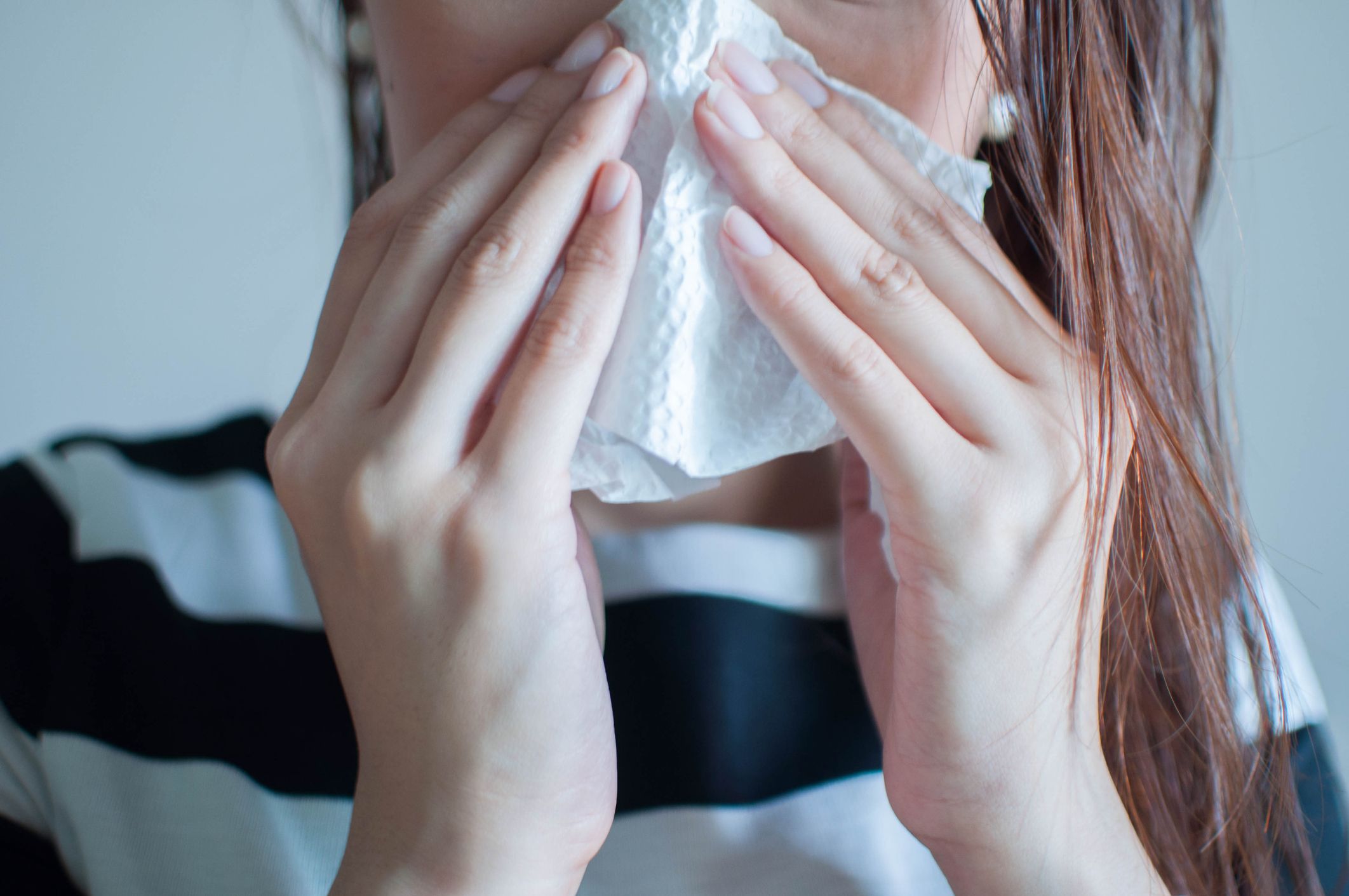You probably don’t spend a lot of time thinking about your eyes. After all, they consistently show up for you every day. But when you’re stuck wondering, Why are my eyes so damn itchy? it’s all you can think about.
At a very basic level, having eye itchiness means that your eyes’ protective measures have been breeched. “The surface of the eyes, like our skin, is in constant contact with our environment,” says Aditya Kanesa-thasan, MD, a corneal surgeon at Wills Eye Hospital. Both the actual surface of your eyeballs and your tears help protect your eyes from a range of potential issues, he says. But sometimes they’re just not enough and ~something~ creates a problem for your eyeballs. Cue the itchiness.
Getting to the root of what’s going on can help you to make it stop—and hopefully prevent itchy eyes from happening in the future. With that in mind, these are some of the most common reasons for itchy eyes, plus what you can do to make the discomfort stop ASAP.
1. You have seasonal allergies.
There are a few reasons why seasonal allergies can cause itchy eyes. One is that allergens like pollen can directly enter your eyes, making them uncomfortable, says Vivian Shibayama, OD, an optometrist at UCLA Health. And, if you’re struggling with allergy issues like sneezing and a runny nose, odds are high that you’re also dealing with watery, itchy eyes. “Your eyes and nasal sinuses are all connected,” Shibayama points out.

Also, your eyes are naturally involved when you have an allergic reaction. “This reaction involves the release of substances that can cause swelling, itching, tearing or redness in this tissue,” adds Muriel Schornack, OD, an optometrist at Mayo Clinic in Rochester, Minnesota.
2. Your contacts are causing problems.
Your contacts seem innocent enough, but they can cause your eyes to get irritated—and itchy. An itchy feeling in your eyeballs that’s caused by your contacts is usually “simply caused by the presence of a foreign body on the front surface of the eye,” says Schornack.
Taking a break from your contacts when your eyes feel off—and making sure they’re well cleaned before you use them again—should help. If you feel like your eyes are constantly irritated by your contacts, Dr. Kanesa-thasan recommends that you stop using your contacts and see your doctor to try to figure out what’s going on.
3. You have dry eye.
Dry eye happens when the amount or quality of your tears isn’t as good as it should be. This can happen if there’s something wrong with any of the elements in your tear film, according to the National Eye Institute (NEI).
Under normal circumstances, your eyes usually do a pretty good job of lubricating themselves. But, when you have dry eye, you can struggle with symptoms like redness, burning, and, yep, itchiness.
Why? “A dry or irritated surface will be inflamed and feel itchy,” Shibayama says. With dry eye, the nerves in your cornea (the clear outer layer on the front of your eye) become “hypersensitive” to normal things they interact with, says Danielle Orr, OD, assistant professor of clinical practice at The Ohio State University College of Optometry.
4. You have pink eye.
Pink eye, a.k.a. conjunctivitis, is a general term for “anything that causes inflammation of the conjunctiva,” the thin membrane that lines the inside of your eyelids, Schornack says. “Conjunctivitis may arise from allergy, infection, or any inflammatory condition of the eye,” she says. That can lead to intense symptoms like eye swelling, watery eyes, redness, and itchiness.
5. You’re dealing with a viral infection.
Interestingly, there may be a link between COVID-19 and itchy eyes, a small study in BMJ Open Ophthalmology found. The researchers studied 83 patients with the virus and found that 81 percent had some kind of eye issues within two weeks of other COVID-19 symptoms. Those included sensitivity to light, eye soreness, and itchy eyes.

Given that your sinuses and eyes are connected, it’s also possible to have itchy eyes with other respiratory infections as well, Shibayama says.
6. Your beauty products are irritating your eyes.
While you don’t apply beauty products directly to your eyeballs (although if you do, we should talk), teensy bits of mascara, eyeshadow, and other products can leach into your eyes and the surrounding areas, causing irritation.
“Many beauty products contain a variety of substances, including dyes, perfumes, and preservatives to which a person can develop an allergy or hypersensitivity,” Orr says. “This can lead to redness and swelling of eyes or the skin around the eyes, and usually itching as well.”
7. You have an eyelid infection.
Blepharitis is inflammation of the eyelids that usually affects both of your eyes along the edges of the eyelids, according to the Mayo Clinic. Blepharitis usually happens when oil glands near the bottom of your eyelashes get clogged by debris. “This debris can lead to overgrowth of normal skin bacteria in the affected area,” says Schornack. And then you’re left with irritation, redness, and itchiness.
8. You have an eyelid mite infestation.
Seriously, this is a thing. The mites are called demodex folliculorum, and it’s “quite common” to have an issue with this, says Shibayama. These mites feed on skin cells and oil, and “can be itchy,” she says.
If you do happen to get an infestation of these, don’t stress—you can get rid of them with antibiotics, steroid drops, or creams.
9. You’ve developed eye strain.
This is actually linked to dry eye. Eye strain happens when your eyes get tired from intense use, like staring at your computer screen for a long period of time or driving for a long time. “Symptoms may be caused by a lack of an even layer of moisture on the surface of the eye,” Schornack says. That can cause dryness in your eyes—and that can feel itchy, Shibayama says.
10. There’s something in your eye.
Obvious, yes! Sometimes something can get caught in your eyelid or tears, causing your eyes to feel…off. “Sometimes these are organic pieces of grass, hay, or other debris that are kicked up by the wind, or loose eyelashes which happen to get stuck under the eyelids,” Dr. Kanesa-thasan says. That can lead to irritation and itchiness, Orr says.
A clue that your itchy eye could be due to something pesky in it, versus something else, per Dr. Kanesa-thasan: It usually just happens in one eye, not both.
How To Relieve Itchy Eyes
The best relief for itchy eyes usually depends on the source of the itch. But doctors says these steps may help you get relief, and fast:
- Use over-the-counter lubricant drops. Schornack specifically recommends preservative-free drops, since preservatives may irritate your eyes. This can help re-wet your eyeballs and rinse out any allergens that may be lurking on the surface.
- Try antihistamine drops. These can help calm your eyes if your itchiness is on the more severe end of the spectrum. “Mast cell stabilizer combination eye drops are usually effective,” Orr says.
- Opt for a cool compress. Wetting a washcloth with cold or cool water, wringing it out, and applying to your eyes can help you find relief, Shibayama says.
- Use an oral antihistamine. About 99 percent sure that your itchy eyes are due to allergies? An oral antihistamine can help, Schornack says.
- Clean your eyelids. If you think you might have blepharitis, gently cleaning your eyelids and eyelashes with baby shampoo can be helpful, Orr says.
- Don’t rub your eyes. It’s super tempting, but Dr. Kanesa-thasan says it’s best to take a pass. “This can worsen the discomfort and risks damage to the eye surface,” he says.
When To Call Your Doctor About Itchy Eyes
If you’ve tried basic, OTC remedies and you’re still uncomfortable, Dr. Kanesa-thasan recommends calling your eye doctor. “Your eye provider can diagnose what is causing your specific symptoms and the best treatment plan with a simple eye exam,” he says.
And, if you’re having other issues, like decreased vision or discharge from your eye, call your doctor ASAP.
Source: Read Full Article
